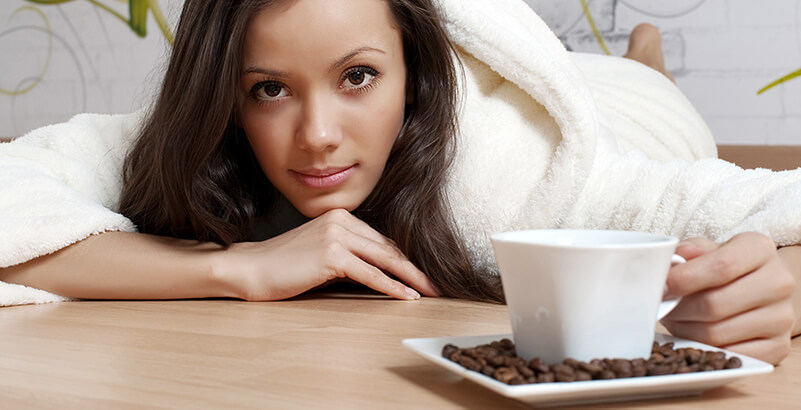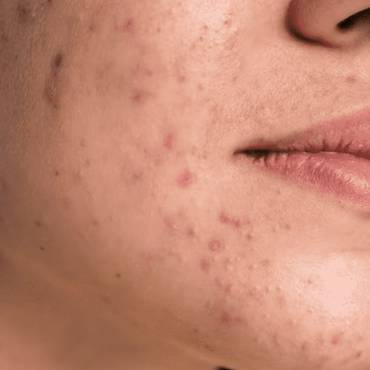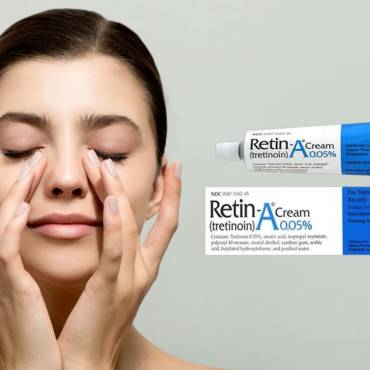One of the most annoying things is pimples on face. People often wonder if does caffeine cause pimples? Research says it is not the reason for skin breakout but can worsen acne. Read to learn about the relationship between coffee and acne.
When it comes to coffee for skin, things get a little tougher. Does coffee cause acne? Some say coffee can exacerbate acne, while others say it does not negatively impact the skin. Try acne medication like Tretinoin 0.05% to get rid of acne. The skincare product effectively eliminates the bacteria that cause acne.
If you are among the 59% of Americans who drink coffee every day and one among 17 million Americans suffering from acne vulgaris, in that case, you may hear about the relationship between coffee and acne. The relationship turns out to be complex. So does coffee give you acne? No coffee does not cause acne but can make the breakouts worse. It depends on how much you drink, what you put in it, and other factors. Coffee is good for the skin because of its antioxidant properties, but how you drink it could cause your skin to develop acne. You will also find some eye-opening facts about coffee and acne based on research studies and expert insight from dermatologists.
Coffee has been proposed to prevent health problems and has attracted much research. It contains antioxidants that help improve skin health, but research continues to understand how antioxidants are absorbed and utilized in the body. However, we know that antioxidants fight free radicals that give rise to signs of ageing and thus help fight fine lines and wrinkles.
Can Coffee Cause Breakouts?
Does caffeine cause acne? Coffee contains a lot of caffeine that makes you feel awake and contributes to stress. A large cup of coffee can double your body’s stress response. Stress does not cause acne but can make your existing ones worse. So, does coffee make acne worse? Production of stress hormones such as cortisol increases your sebaceous glands’ oil production.
Furthermore, consuming late-night takes a toll on our sleep. Less sleep means more stress, which could indicate worsening acne. The effects of caffeine on sleep vary from one person to another. If you are sensitive to caffeine, try to cut caffeine intake by the early afternoon to avoid sleeping problems.
Researchers believe that the hormones found in mild tends to trigger acne. In clinical studies, non-fat milk is worse than full-fat milk. Studies prove that milk triggers acne, and there is enough evidence to suggest that dairy milk plays a role strongly.
How much sugar are you adding to your coffee? If you like putting extra sugar cubes in your coffee, you probably increase the risk of breakouts. There is already plenty of research done that shows a link between sugar consumption and acne. A diet high in sugar increases the amount of insulin hormone produced. The hormone plays a role in the development of acne. Moreover, your sugary latte with a scoop of chocolate can worsen this effect.

Should you ditch your morning cup of coffee?
Many of us think caffeine causes acne. But coffee does not trigger acne, but drinking too much, loaded with milk and sugar, can worsen your acne. If you are still concerned that coffee contributes to pimple breakout, quitting your cup is unnecessary. Before you ditch your morning latte, try the following:
-
- Avoid putting refined sugar, sugar syrups, or your favourite chocolate syrup in your coffee
- Use skim milk instead of high-fat milk, or you can switch to coconut or almond milk
- Avoid consuming caffeinated beverages in the afternoon or at bedtime to ensure you get a good night’s sleep.
- Skip the chocolate cookies, pastries, or doughnuts you often pair with your morning latte.
Everybody reacts to caffeine differently. Can coffee cause acne? If you want a more concrete answer, try cutting off your cup of share for a few weeks and see the difference in your skin. Then you can slowly reintroduce coffee and see if your zits worsen.
After trying out these tips, if you still have acne, and cannot find out the causes of pimples on your face, discuss with your dermatologist about acne medications. Tretinoin 0.05% is an effective acne treatment that can help with every case of acne.
Also Read: The truth about antibiotic use for acne treatment: is it effective and safe?



